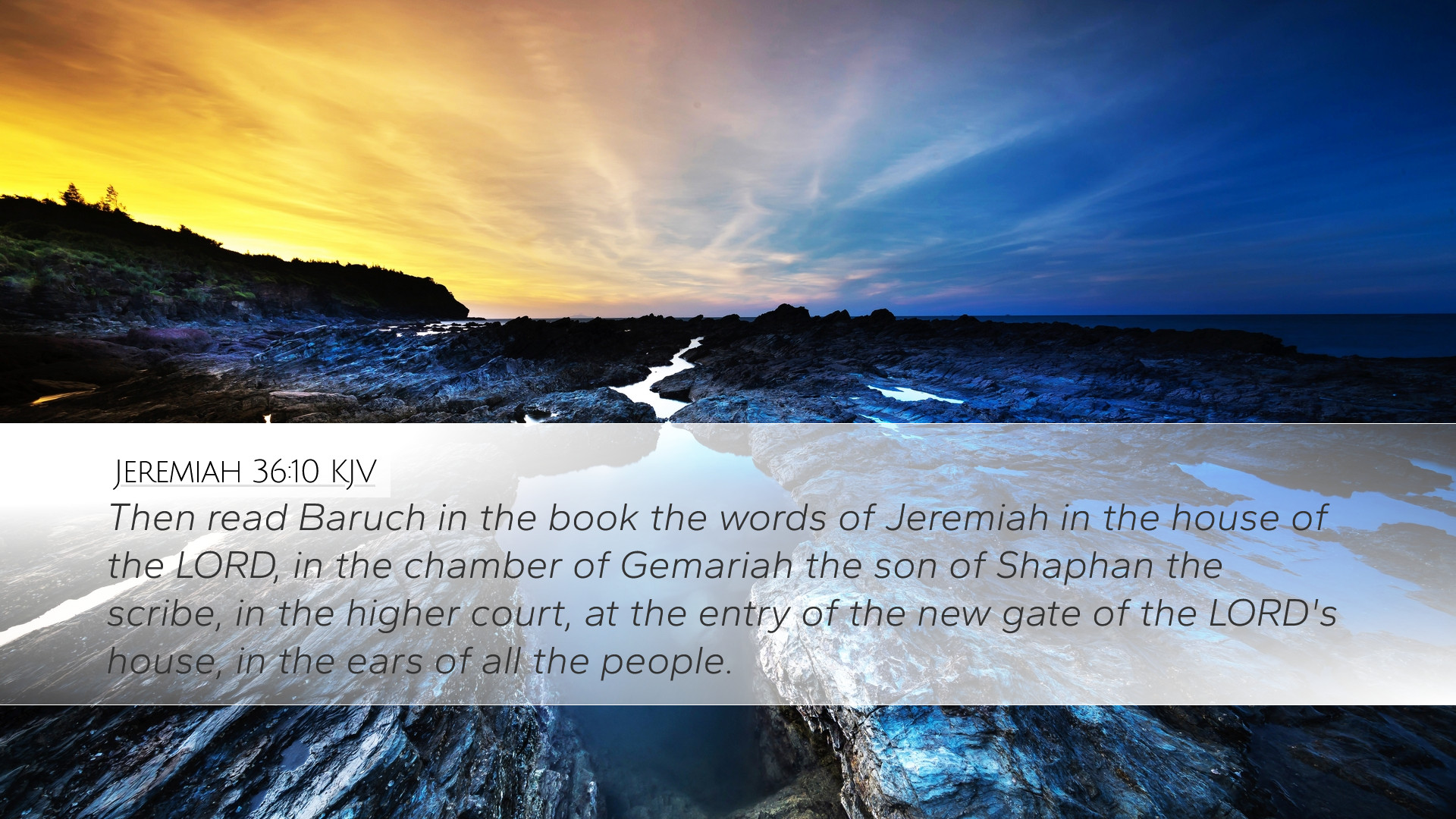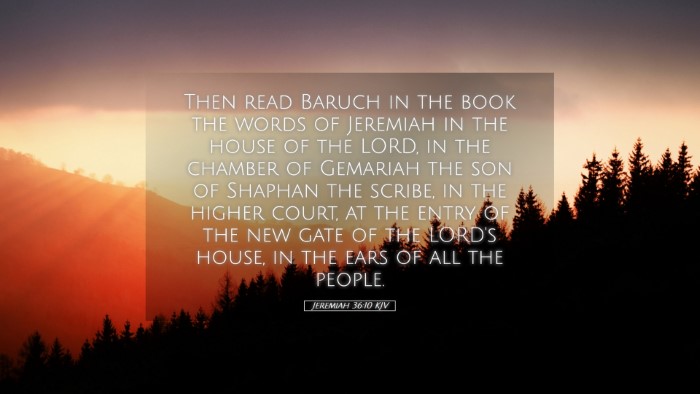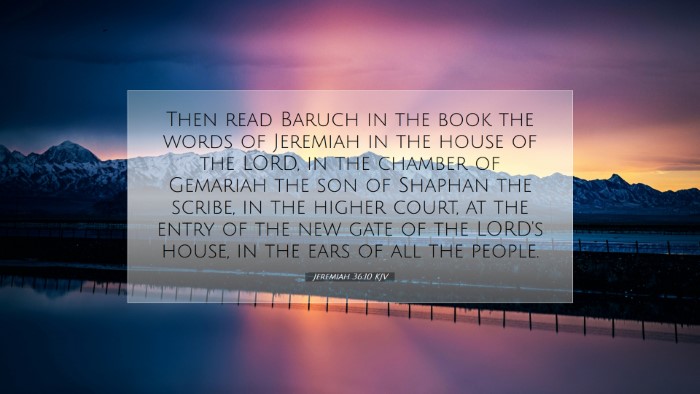Commentary on Jeremiah 36:10
Jeremiah 36:10 (KJV): "Then Baruch read the words of Jeremiah in the house of the LORD, in the chamber of Gemariah the son of Shaphan the scribe, in the ears of all the people."
Introduction
The passage in Jeremiah 36:10 is significant within the broader narrative of the prophetic ministry of Jeremiah. It marks an important moment in the dissemination of God's word during a critical period in Judah’s history. This commentary will synthesize insights from various public domain scholars, emphasizing the implications of Baruch’s actions, the role of divine communication, and the response of the people.
Baruch as a Scribe and Messenger
The mention of Baruch, Jeremiah’s scribe, highlights an essential aspect of prophetic literature. Baruch’s role was not simply to transcribe but to actively communicate the divine message. Matthew Henry emphasizes that Baruch’s act of reading publicly serves two purposes: it exposes the word of God to the people and also fulfills Jeremiah’s prophetic duty amidst opposition.
Albert Barnes points out that Gemariah, a scribe from a prominent family, is significant in this context. The choice of a "chamber" within the temple reflects a respectful environment for the delivery of God’s message, indicating that the prophecy is sanctioned and should be heeded earnestly by those present.
The Public Reading of Scripture
Adam Clarke asserts that the public reading of the scroll in the Temple is pivotal. In ancient Israel, the Temple stood as the center of worship and teaching. Thus, Baruch’s reading not only empowers the message but also encourages communal engagement with the Scriptures. This act demonstrates the importance of the Word of God and sets a precedent for the public reading of Scripture in subsequent generations.
The Setting: Contextual Implications
The historical context during which this event occurs underscores the urgency and gravity of the divine message. The king at this time, Jehoiakim, represents a generation resistant to prophetic counsel. The act of reading in the Temple during a time of impending judgment reflects God's desire to reach out to a wayward nation.
Henry provides insight into the environment: the Temple was often a place of refuge where truth could be declared without the fear of immediate persecution. The choice of location signifies God’s persistent pursuit of His people despite their rebellion.
The Response of the People
The immediate response of the people listening serves as a crucial lesson for modern readers. Their reception of God’s Word, as observed in the chapter, highlights the varied reactions people have to the prophetic message. Some may respond with conviction, while others may exhibit skepticism or indifference.
Barnes emphasizes that the people's willingness to listen can be contrasted with their reluctance to act upon what they hear. This commentary provokes a self-reflection among today’s believers concerning their own reception of God’s Word and the actions that follow.
Theological Significance
This passage illustrates the significant themes of God’s mercy and judgment. The act of reading the scroll underscores God’s commitment to reveal His will to His people. Clarke notes that it reflects the notion of divine longsuffering—giving the people an opportunity to repent before judgment is fully realized.
God’s Communication with Humanity
Public domain commentaries consistently highlight the importance of God communicating through prophets. Jeremiah’s prophetic ministry, through Baruch’s reading, underscores that God is not distant but rather active and involved in the lives of His people. His desire is for their return and restoration.
Practical Applications
For pastors and theologians, this narrative encourages the centrality of Scripture in worship and community life. The public reading of God’s Word remains a powerful practice, emphasizing the necessity of hearing and responding to divine instruction.
- Encouragement for Public Reading: This passage advocates for the continuation of communal engagement with Scripture within congregations.
- A Call to Responsiveness: Reflecting on the people's varied responses can serve as an exhortation to evaluate personal and communal engagement with God’s Word.
- Understanding Context: Recognizing the historical backdrop can aid in preaching and teaching, enhancing the connection between ancient texts and modern applications.
Conclusion
The act of Baruch reading Jeremiah’s words in the temple emerges as a significant moment within the Scriptures, highlighting the role of God's Word in guiding the people of Israel. Through the insights of Matthew Henry, Albert Barnes, and Adam Clarke, readers are reminded of the gravity of God's communication, the importance of a responsive community, and the persistence of divine mercy towards a rebellious people.


